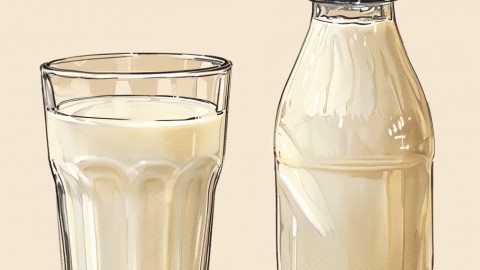Can people with high uric acid levels drink milk?
Generally, people with high uric acid levels can usually drink milk, but it is not recommended for those who are allergic to milk or have severe kidney damage. If in doubt, it is advisable to consult a healthcare professional in advance. Detailed analysis is as follows:

Milk is a low-purine food, with purine content typically less than 5 mg per 100 grams. Moderate consumption does not significantly increase uric acid production in the body. At the same time, milk is rich in high-quality protein, calcium, and various vitamins, providing essential nutrients without adversely affecting uric acid metabolism.
If individuals with high uric acid levels are allergic to milk, they may experience allergic reactions such as rashes or diarrhea after consumption, and milk intake should be avoided to prevent adverse effects on health. Additionally, when elevated uric acid levels have caused severe kidney damage or kidney insufficiency, protein intake should be adjusted according to kidney function.
For individuals with high uric acid levels, choosing low-fat or skimmed milk is recommended. Flavored milk with added sugars should be avoided. During consumption, individuals should observe their body's response carefully. If there are specific health concerns, consultation with a doctor or nutritionist is advised to develop a personalized dietary plan.









